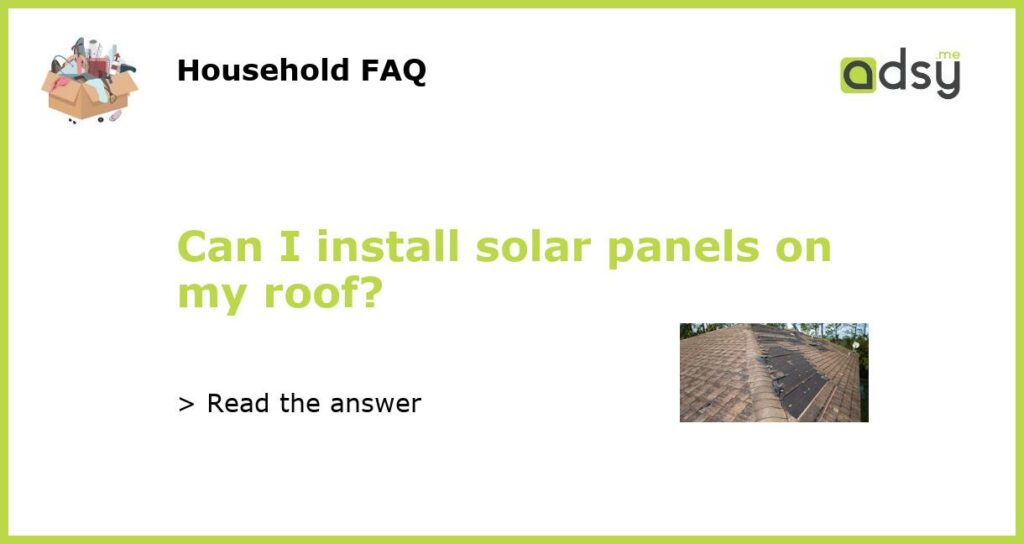Can I Install Solar Panels on My Roof?
If you are considering switching to clean energy and reducing your carbon footprint, you might be wondering if you can install solar panels on your roof. The short answer is yes, in most cases, you can install solar panels on your roof. However, there are a few factors to consider before making a decision.
When determining whether your roof is suitable for solar panels, there are several key considerations to keep in mind:
Roof Condition
The first thing you need to consider is the condition of your roof. Solar panels typically last for 25 to 30 years, so it’s important to ensure that your roof is in good condition and will not need major repairs or replacement during that time. If you have an older roof or one that is showing signs of deterioration, you may need to address those issues before installing solar panels.
It’s also worth noting that solar panels can actually help protect your roof by providing an extra layer of insulation, which can extend the lifespan of your roof.
Roof Orientation and Angle
The orientation and angle of your roof will also play a role in determining its suitability for solar panels. Ideally, you want a south-facing roof with minimal shading from trees, buildings, or other obstructions. A south-facing roof will receive the most sunlight throughout the day, maximizing the output of your solar panels.
The angle of your roof is also important. In general, roofs with a pitch between 30 and 45 degrees are considered optimal for solar panel installations. However, solar panels can still be installed on roofs with different angles, as long as they are within an acceptable range.
Structural Integrity
Before installing solar panels on your roof, you should have a structural assessment performed to ensure that your roof can support the additional weight of the panels. While solar panels are relatively lightweight, they can still add several pounds per square foot to the load on your roof.
It’s important to consult with a professional to determine if any structural reinforcements are needed before proceeding with the installation. This will help prevent any damage to your roof or your home.
Local Regulations and Permits
Before installing solar panels, it’s important to check with your local regulations and obtain any necessary permits. Some areas may have specific requirements or restrictions when it comes to solar panel installations, so it’s important to be aware of any regulations that may apply to your area.
You may need to submit documents and plans to your local authorities, outlining the details of your proposed solar panel installation. This step is crucial to ensure that your installation is up to code and compliant with local regulations.
Financial Considerations
Finally, it’s important to consider the financial aspects of installing solar panels on your roof. While solar panels can provide long-term savings on your utility bills and potentially even generate income through net metering or feed-in tariffs, there is an upfront cost involved in the installation.
Fortunately, there are various incentives, grants, and financing options available to help offset the initial investment. These may include tax credits, rebates, and low-interest loans. It’s worth researching and exploring these options to see what financial assistance may be available to you.
In conclusion, while there are several factors to consider before installing solar panels on your roof, it is generally possible for most homes. Proper roof condition, orientation, and angle, along with structural integrity and compliance with local regulations, are all key considerations. Additionally, it’s important to assess the financial implications and explore available incentives to make an informed decision.

